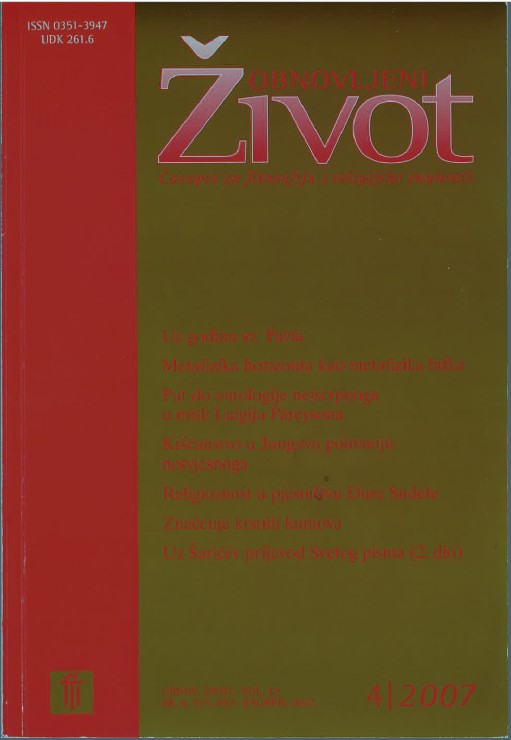The Path toward the Ontology of the Inexhaustible in the Thought of L. Pareyson
Keywords:
ontology of the inexhaustible, interpretation, form, truthAbstract
Contemporary philosophers are demonstrating a growing interest in the maturation process of Luigi Pareyson's hermeneutic thought in order to analyze its autonomous development and original tenets. Even at the outset of his creative activities Pareyson exhibits his maturity with respect to particular elements in hermeneutics, however, his theory is developed more profoundly in his work on aesthetics, and he achieves the peak of his maturity in the ontology of the inexhaustible. There exists a broad spectrum for the application of hermeneutics in the field of aesthetics, since a work of art, regarded as form, due to its inexhaustible nature can evoke an unlimited number of interpretations. Upon further reflection, Pareyson applies the inexhaustibility of form also to truth which cannot be manifold, nor relative, but only absolute, one and ahistorical within the diverse interpretations made of it. Truth is not portrayed as an ideal to be attained, a standard to compare oneself with, but rather as the primary origin of thought. The essence of interpretation is in its orientation toward the ultimate and supreme truth, the truth of being. At the core of the ontology of the inexhaustible lies the original solidarity between the individual and truth, and these are manifested as inseparable, for the truth cannot be isolated from the path along which it is unveiled and attained. The historical situation is not to be seen as hindering one from attaining truth, but rather as an aid, and as long as an ontological openness exists, the person as a whole becomes an irreplaceable factor in the process involving the revelation of truth. Deplorable, however, is Pareyson's resolve to choose between remaining loyal to truth or betraying it, between attentiveness to one's being or obliviousness to it, be it in thought or in action. To deny the truth or renounce it is not a matter of shaping one's thoughts into a verbal expression signifying nothing; rather to renounce the truth means to refuse to acknowledge the being of the individual, and in so doing to renounce one's most profound calling and that is to strive to recall the truth and to recognize being.
Downloads
Published
Issue
Section
License
Jednom prihvaćeni članak obvezuje autora da ga ne smije objaviti drugdje bez dozvole uredništva, a i tada samo uz bilješku da je objavljen prvi put u Obnovljenom životu. Uredništvo će obavijestiti autora o prihvaćanju ili neprihvaćanju članka za objavljivanje.
Članci objavljeni u časopisu se, uz prikladno navođenje izvora, smiju besplatno koristiti u obrazovne i druge nekomercijalne svrhe.


